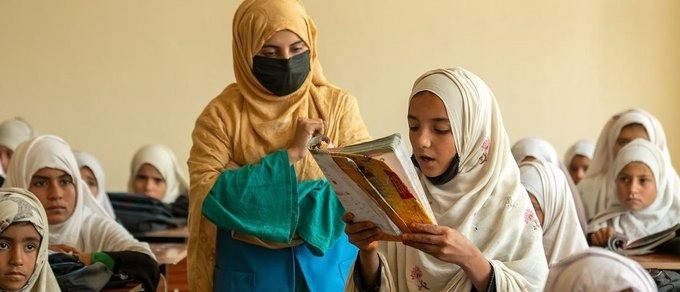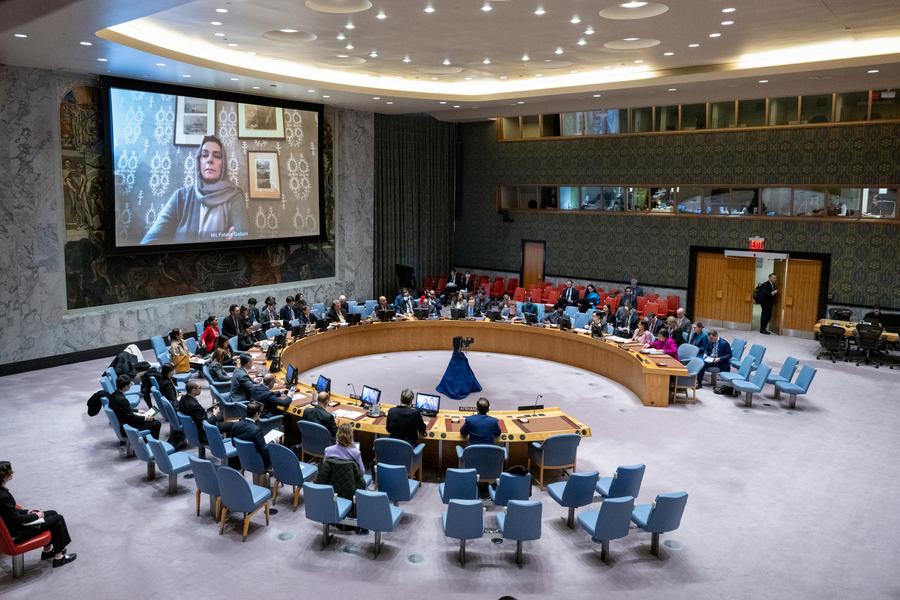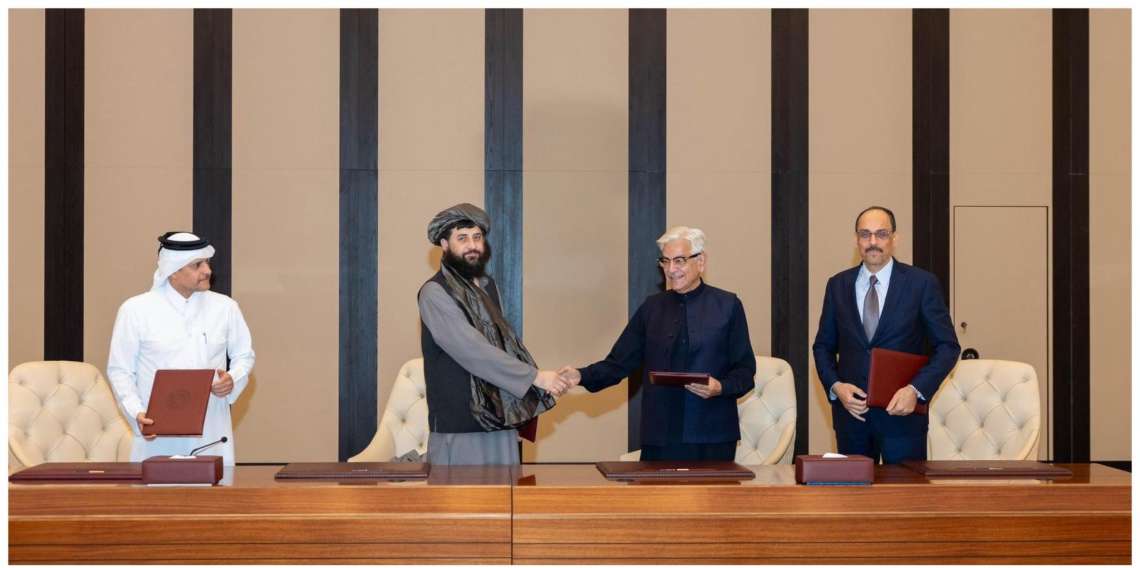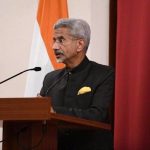If implemented, Dujarric said, the directive would impose yet further restrictions on women and girls’ rights to education and access to healthcare…reports Asian Lite News
The United Nations urged the Taliban authorities to reconsider implementing restrictions on women and girls’ access to medical training in Afghanistan, a UN spokesperson said.
“We have been following the situation in Afghanistan,” Stephane Dujarric, spokesperson for the UN chief, said at a daily press briefing. “We are concerned indeed about a reported directive from the de facto Taliban authorities that is preventing women and girls from attending classes at private medical institutions.”
Multiple media reported that the Taliban had ordered private and public institutions to stop providing medical courses for women and girls. Five institutions in Afghanistan said the Taliban had instructed them to close until further notice.
If implemented, Dujarric said, the directive would impose yet further restrictions on women and girls’ rights to education and access to healthcare.
Ultimately, it would have a detrimental impact on Afghanistan’s healthcare system and development, he added.
The spokesperson urged the Taliban authorities to reconsider implementing this directive in view of the negative impact it would have on Afghan women and girls and all people across the country.
Several institutions across Afghanistan have confirmed the suspension of these courses, with some students sharing emotional videos online of their abrupt removal.
The decision to halt these educational programmes comes as part of the Taliban’s broader policy to restrict women’s access to education, which has been in place since their return to power in August 2021.
Under this regime, girls have been barred from attending secondary school and university, leaving midwifery and nursing courses as one of the few remaining avenues for women to pursue education and careers.
Five separate health institutes across Afghanistan confirmed that women would no longer be allowed to attend their classes. Videos shared online showed students crying and expressing shock at the news. “Standing here and crying won’t help,” one student is heard saying in a video, urging others to stay calm.

Another video shows women quietly protesting as they walk out of their institutions, singing as they make their way through the hallways. “This was our only hope after being banned from universities,” said one midwifery teacher in Kabul.
The Taliban’s health ministry informed institute directors in a meeting on Monday of the decision. A health official, who requested anonymity, confirmed that no official letter had been issued, but directors were told that female students could no longer study in their institutions, effective immediately.
These instructions were delivered in an informal meeting, with little explanation given, and the directors were told simply to comply with the directive from the supreme leader.
The suspension of midwifery and nursing education for women is particularly significant for Afghanistan’s healthcare system. The country already faces a critical shortage of medical professionals, with a desperate need for midwives.
Last year, the United Nations reported that Afghanistan needed an additional 18,000 midwives to meet its healthcare needs. This shortage is compounded by Afghanistan’s high maternal mortality rate, one of the worst in the world.
In 2023, the World Health Organization recorded 620 deaths per 100,000 live births in Afghanistan.
For Afghan women, nursing and midwifery had become one of the few career paths available. Under the Taliban’s strict gender-based policies, male doctors are not allowed to treat female patients unless a male guardian is present, making it crucial for women to be trained in these fields.
Some students said they were told to “wait until further notice”, with no explanation given as to when or if they would be allowed to resume their studies. “They told us to leave and not to stand in the courtyard because the Taliban might arrive at any moment,” one student said. “We were terrified.”
The international community has reacted with concern, with the UK’s charge d’affaires in Afghanistan expressing deep unease over the decision. “This is another affront to women’s right to education and will further restrict access to healthcare for Afghan women and children,” the official said on social media.
He response to the closure of midwifery and nursing institutes, several health officials and managers from these institutions have sought clarity from the Taliban government.
Some are trying to complete final exams for students, as the closure has disrupted the academic schedule. However, there are fears that the situation could escalate further, leaving Afghanistan with even fewer female healthcare professionals.
The closure of midwifery and nursing courses for women will likely exacerbate the already dire healthcare situation in Afghanistan. For women, it represents another devastating blow to their access to education and professional opportunities in the country.
ALSO READ: Indian Fintech Sees Job Boom
ALSO READ: India, the Forgotten Epicentre of Knowledge and Trade: Dalrymple














